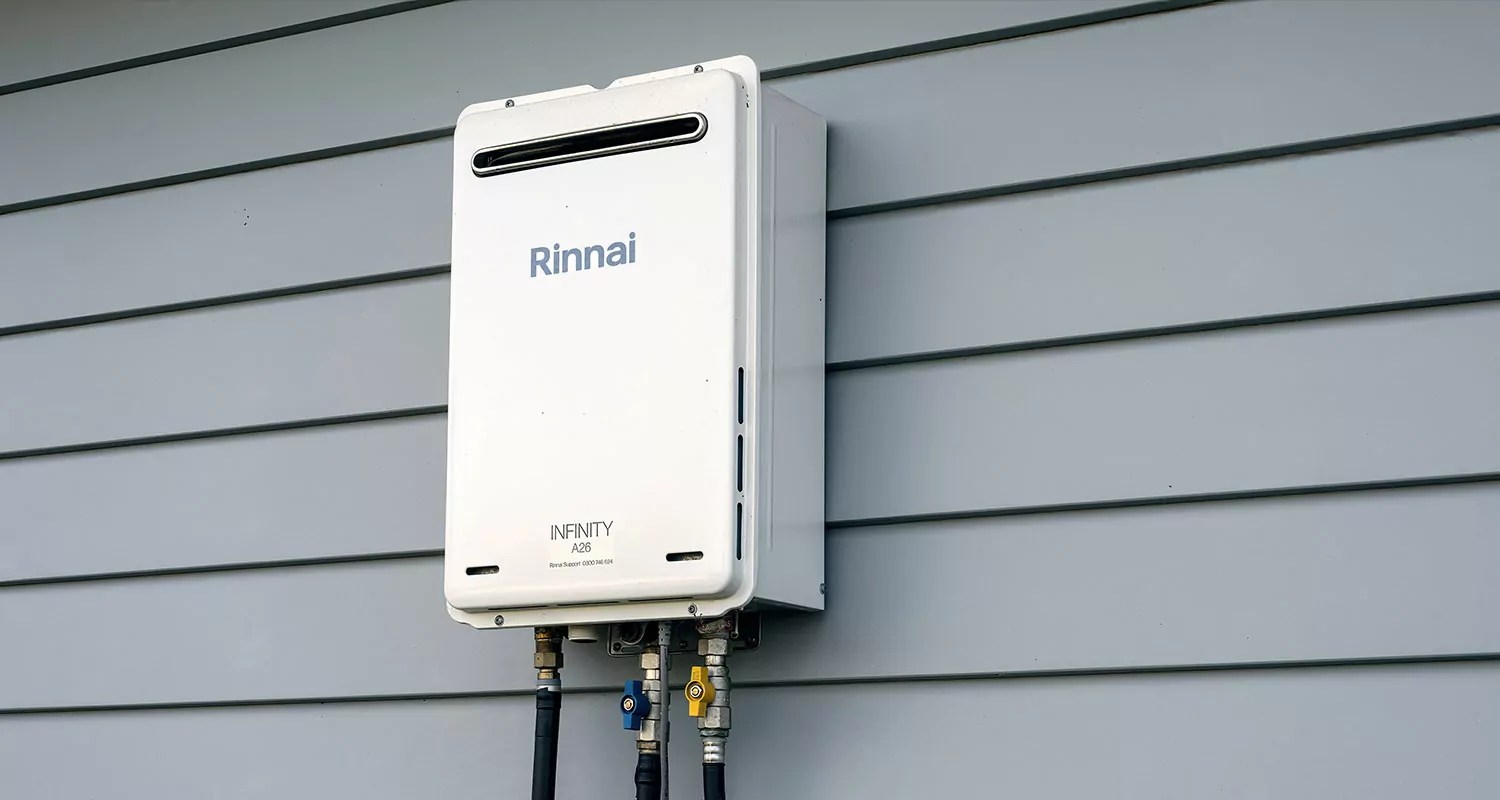
How Do Tankless Water Heaters Work: An Analytical Dive
Table of Contents
Ever caught yourself wondering, “how do tankless water heaters work?” We’ve all been there. Unlike the bulky tanks that hog space in many basements, the tankless wonders are compact and sleek.
But how do they manage to provide hot water on demand? And why are they becoming such a favored choice in contemporary homes? In a world where convenience and efficiency are king, these heaters are stealing the show. Let’s break it down and explore the mechanics, advantages, and nuances of this impressive technology.
How do Tankless Water Heaters Work?

Tankless water heaters, also known as on-demand or instantaneous heaters, function without the need to store large amounts of water. Instead, when you open a hot water tap, cold water travels into the unit, and a gas burner or electric element heats it up immediately. So, no waiting around for a tank to fill or reheat. It’s like magic, but it’s all based on practical engineering.
Tankless Water Heater Advantages (Pros)
- Instant Hot Water: The moment you want hot water, it’s there. No more scheduling showers or waiting after someone takes a long one.
- Space Savers: Imagine decluttering your utility room or basement. These devices are compact and can even be wall-mounted.
- Energy Efficient: With no need to heat and reheat water in a tank, you’re looking at energy savings of up to 50% in some cases.
- Long-Lasting: While traditional heaters may last 10-15 years, tankless varieties often boast a lifespan of 20 years or more.
Tankless Water Heater Disadvantages (Cons)
- Initial Cost: While they save in the long run, the initial outlay can be significantly higher than traditional units.
- Limited Output: If you’re running multiple showers and appliances, you might find the water isn’t as hot as you’d like.
- Electric vs. Gas: Electric models might not heat as quickly as their gas counterparts.
Hiring the Right Company for Your Tankless Water Heater

So, you’re sold on the idea, but how do you make sure you get the right company for the job? It’s crucial to:
- Research reviews and testimonials.
- Seek referrals from friends and family.
- Check for proper licensing and insurance.
Remember, this is an investment. Make sure you choose a company like Chambliss that has years of experience and are one of the only Rinnai certified tankless water heater installation and repair providers in San Antonio.
Proper Installation
Having the right company is just the beginning. Proper installation ensures efficiency and longevity. Key aspects include:
- Right-sized units for your home.
- Appropriate placement to reduce lag time.
- Proper ventilation if you’re opting for a gas model.
Maintenance
Like all things, a little care goes a long way. Regular maintenance includes:
- Flushing to remove mineral buildup.
- Inspecting for leaks and wear.
- Checking the ventilation system, especially for gas models.
Why Should You Consider Going Tankless?
Still on the fence? Think about the future. With rising energy costs, increased interest in energy efficiency, and the convenience of on-demand hot water, going tankless might be one of the best decisions you make for your home.
So, the next time someone wonders aloud, “how do tankless water heaters work,” not only will you know the answer, but you’ll also have a story to share about your own experience and why it’s worth considering.
Traditional Vs Tankless:
| Feature | Traditional Tank Heater | Tankless Water Heater |
|---|---|---|
| Size & Space Requirement | Bulky; requires significant space | Compact; can be wall-mounted |
| Energy Consumption | Constantly heats stored water | Heats water on demand, reducing wastage |
| Lifespan | Typically 10-15 years | Often 20 years or more |
| Hot Water Supply | Limited by tank size | Continuous, based on flow rate |
| Initial Cost | Generally lower | Higher, but long-term savings |
| Maintenance Frequency | Regular due to sediment build-up | Less frequent; no sediment from storage |
| Efficiency | Can lose heat (standby loss) | Higher efficiency; no standby loss |
| Replacement Costs Over Time | Requires more frequent replacing | Long-lasting, fewer replacements needed |
| Environmental Impact | Higher energy consumption | Uses less energy, reducing carbon footprint |
FAQs on Tankless Water Heaters
What are two disadvantages of a tankless water heater?
While tankless water heaters offer many advantages, they do come with drawbacks. Firstly, they can have a higher upfront cost compared to traditional units. Secondly, simultaneous, multiple appliance use might strain their output, resulting in decreased water temperature.
Do you ever run out of hot water with a tankless water heater?
The beauty of tankless water heaters is they provide hot water on demand. Generally, they don’t “run out” like traditional tank systems. However, if many outlets require hot water simultaneously, it might not be as hot as expected.
Is it worth switching to a tankless water heater?
Absolutely, for many homeowners. Tankless water heaters can be more energy-efficient, lasting longer, and offering endless hot water. But, consider factors like your household’s water consumption and the initial investment before making a decision.
Why avoid a tankless water heater?
There might be a few reasons. For one, the initial investment can be steep. Additionally, if your home has frequent high-volume hot water needs, a single unit might not suffice. It’s essential to assess your requirements and budget before jumping in.